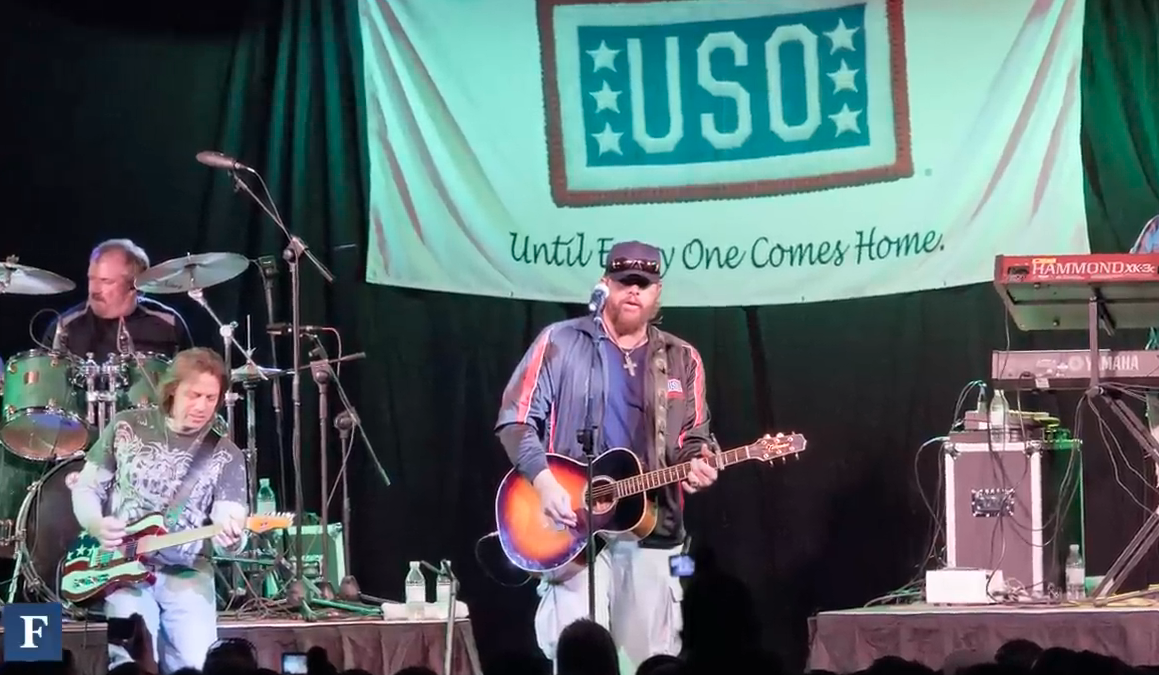
Singer Hillary Scott’s media tour following her new single “Thy Will” is evidence that the hushed culture about miscarriage is finally changing. That’s a good thing.
The Lady Antebellum star released the song as a faith-based side project with her family for an album titled “Love Remains.” The lyrics, said as a personal prayer, reveal confusion, frustration, and pain that lead to an honest conversation with God. After pouring out pain, the lyrics culminate: “Like a child on my knees all that comes to me is: thy will be done.”
Although the single was released in April, Scott did not immediately reveal the backstory to the song that references great pain and tragedy. She explained at a Nashville press conference that she wanted “people to have a chance to hear it, and not hear it through my story yet.”
While Scott allowed her fans to apply their own experience of trial to the song, she did not remain silent about her tragedy. Nearly two months later, she spoke up on “Good Morning America” to reveal her own suffering.
“Last fall, I went through a miscarriage,” a composed Scott said. As she heard her own words, her eyes begin to water. It is clear that, even a year later, the pain is still fresh as she remembers her loss. Once regaining her composure, she said: “This is something that is still not talked about very often. I also feel like there is this pressure that, you are able to just snap your fingers and walk through life like it never happened.”
On national television, Scott touched the hurting hearts of millions. She identified with the many men and women who long to hold the baby they never knew while navigating a culture that doesn’t notice their loss. She took an important step toward a healthy public conversation on miscarriage.
This week, nearly two months after sharing about her miscarriage on “Good Morning America,” Scott appeared on “Fox and Friends” with her family to promote the album. Questions in the segment provided Scott an opportunity to talk again about her inspiration for the single. When asked why she opened up about something that is normally kept private, she said, “I felt like I pour so much of my heart into my relationships and also into my music, that not sharing would have been dishonest.” She said her story is “giving other women who have been through it, and their spouses, a voice.”
This is true. My husband and I are among the millions, and her song gives a voice to our grief. Her words and her story give a voice to our experience. Her voice adds to the growing choir of voices that remind us our grief matters, our children matter, our loss was real.
Overcoming a Hushed Culture
This collective voice matters because of the silence that has cloaked the tragedy of miscarriage for so long. A year ago, I shared my own miscarriage story and in it, I pointed to this hushed culture and the evidence we are not saying enough. I made a call: “It is time to talk about early pregnancy.” In part, we must talk about early pregnancy so we can talk about early pregnancy loss. Scott’s story and words are just further evidence that many people feel the same way following a miscarriage.
The general consensus is that we don’t talk about miscarriage. Not to our co-workers, not to our bosses, not to our acquaintances, and most tragically maybe not even to our friends, families, or pastors. The accepted social script is that you do not announce your pregnancy until you are past the first trimester (during which risk of miscarriage is greatest) because if you do miscarry, then you would have to tell people.
Let me restate the conventional logic: “I am not supposed to announce the life of my child, because if my child dies, I would have to tell people.”
We have a public understanding that does not give the same amount of dignity to our lost unborn children as it does to any other death. Whether a family suffering a miscarriage chooses to be public or private, consumed or distracted, hopeful or hopeless, they should have the room to do so, just as they would while experiencing any other grief. Giving room for grieving in silence is much different than silencing one’s grief.
Misconceptions about Miscarriage
Unfortunately, this hushed culture not only isolates grieving women and families, it also leaves common misconceptions unchecked. In an article on this topic, Katherine Hobson of NPR points out “most people think a miscarriage is rare, and many believe that if a woman loses a pregnancy that she brought it upon herself.” These two statements, she makes clear, are not true.
She explains how pervasive these beliefs are, citing a survey by Dr. Zev Williams. She notes that while chromosomal abnormalities cause 60 percent of miscarriages, many people believed there were additional common causes of early pregnancy loss. A majority of the participants believed that a stressful event and lifting heavy objects could trigger miscarriage, and nearly a quarter believed something as small as an argument could be the cause.
Hobson shows these misconceptions hurt people. Of the people who shared their experiences with NPR, many said “those myths were repeated back to them by friends, family, or colleagues after their own miscarriages.” One woman said she had been told her high heels were to blame for her loss. Hobson’s article clearly explains these statements are not true and can cause great grief and even guilt.
Giving Voice to the Voiceless
But things are not hopeless. Champions like Scott are rising. Women and families are no longer standing in the shadows, hushed and alone. They are stepping out into the light, finding a voice, and demanding a better dialogue.
Giving a voice to the grief of pregnancy loss does not mean every woman and family must feel comfortable openly divulging their story of loss on national television. But people will participate as they are able. Some may muster up the courage to have an honest conversation with the spouse. Some might just tell their best friends when those friends suffer their own loss. Some might say nothing at all, and it is especially for them that we must create a caring, loving dialogue about pregnancy loss.
Our grief has been silenced for too long. Women and men are trying to exist every day with a heart full of heaviness and empty arms, and the cultural silence tells them their grief does not matter.
Even since my first miscarriage more than two years ago, I have seen a change. During the Christmas season of 2014, I wanted to donate to a charity in honor of my babies. After consulting my doula and a pregnancy loss grief counselor, I could find no well-known, large organization focused on providing miscarriage care.
I didn’t know how many small and growing organizations were out there loving women and families behind the scenes. Today, many of these organizations have moved into public view, but there is still so much work to do. Projects such as the upcoming film documentary “Don’t Talk About the Baby” reveal both the hushed culture and the burgeoning conversation. Other organizations like Miscarriage Matters, which was founded in 2012, reveal that people are starting to organize to better care for women and families as they experience loss.
These efforts are desperately needed to not only break the silence, but provide a developed cultural understanding of miscarriage. The sooner we can have an open, loving, true, and constructive conversation about pregnancy loss, the more we will meet the needs of women and families. We will not take away their pain, but will have the opportunity to put their suffering in context by recognizing it as a tragedy.
Talking about it isn’t the end. It is the beginning. We cannot master the conversation and cause healing. But we can talk about it, give families space (and permission) to grieve, and listen.









